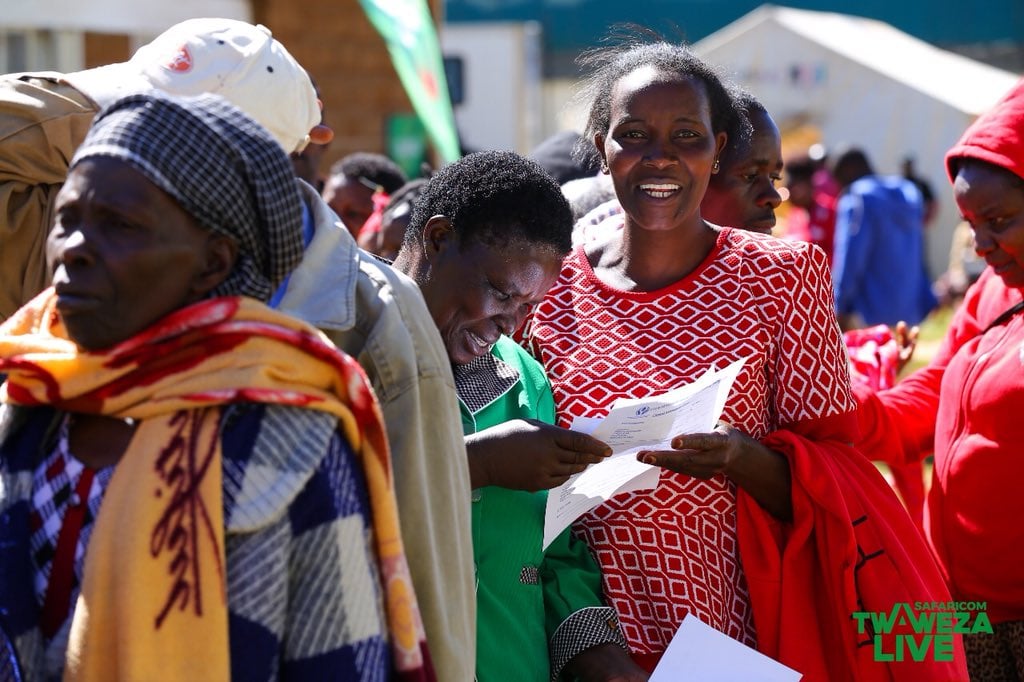
In rural areas, often there is little knowledge and even less specialized treatment or surgery when required. We find that too often, poor families wait too long or seek the opinion of cheaper unqualified doctors before seeking proper help or even self diagnose when need be. When it comes to non-communicable diseases like diabetes, patients are even more misinformed on what to look out for and sometimes end up seeking for help when its too late. But more often than not, it’s not their fault – and this is where the impact of free medical camps like the one done in Meru comes in.

Walking into the Kinoru Dispensary Grounds, you could see and feel how important this exercise was to these people. To some, this was the first time they would see a doctor in years and to others, this was an answered prayer to check the status on their already existing conditions. To the health professionals, this was the opportune moment to answer their patients’ questions and debunk any health myths they had mistakenly believed e.g that of diabetes.

Diabetes is one of the most common non-communicable diseases of the 21st century. In 2007, the global burden of diabetes was estimated to be 246 million people. The international diabetes federation (IDF) estimates that this figure is likely to rise to 380 million by the year 2025 (IDF Atlas, 2007)
Diabetes and other non-communicable disease are now a threat to Kenya’s
development as they often result in long standing complications that are usually very costly to treat. Similarly, these diseases are long standing and if not managed well can be fatal.
They progressively drain the strength and resources of an individual rendering them unproductive and poor. This burden is in most cases passed on to families and the community with untold retardation of economic progress and
eventually exacerbating poverty.
According to Mrs Eva Muchemi, Executive Director of the Kenya Diabetes Management & Information Centre, the cases of diabetes in children is growing at an alarming rate and it is more shocking that there are two to three new cases diagnosed each month.

“That is why the partnership between the Safaricom Foundation and DMI Centre is important as we are able to reach those in marginalized areas who lack access to these crucial services.
We obviously need to improve our failing healthcare system where costs are skyrocketing and the poor do not have the healthcare they need. If you look at the price of a vile of insulin which should be enough for a month for an adult diabetes patient, the cheapest is at Kshs 500, but as the DMI Centre, we’re in talks with the Ministry of Health to subsidize this cost to about Kshs 200 especially in the counties because most of our patients cannot afford that every month.
Also, if you look at the number of people with already progessed levels of diabetes, you find that most of them are men. Some of the reasons why this is so is because they are not getting health checks as often as they should and because women are more inclined to take better care of themselves. However, we are debunking this notion wherever we set up camp by encouraging more men to get tested to discourage the high number of gangrene leading to the many leg amputations that we have so far seen in male diabetes patients.” says Eva.
Symptoms of diabetes
Diabetes affects the body’s ability to produce or respond to the hormone insulin is impaired, resulting in abnormal breakdown of carbohydrates and elevated levels of glucose in the blood and urine.
The most common diabetes symptoms include frequent urination, intense thirst and hunger, weight gain, unusual weight loss, fatigue, cuts and bruises that do not heal, male sexual dysfunction, numbness and tingling in hands and feet.
If not controlled, diabetes has dire consequences including possibility of heart attack, stroke, blindness, kidney failure and in other scenarios, gangrene, leading to leg amputation.
“Another reason we are grateful for these camps is because we also get to teach them about low cost health care solutions like M-Tiba where they can save up for simple checkups and treatments at their local clinics instead of waiting at home for the disease to progress. That Kshs 10 or Kshs 50 may look insignificant to someone else, but a farmer in Kinoru, it brings them one step closer to getting the medical attention they require.
The help that Safaricom Foundation has offered is immeasurable and it’s my hope that we will continue with these camps even after #TwawezaLive as we continue preaching and championing for good health around the country.”















